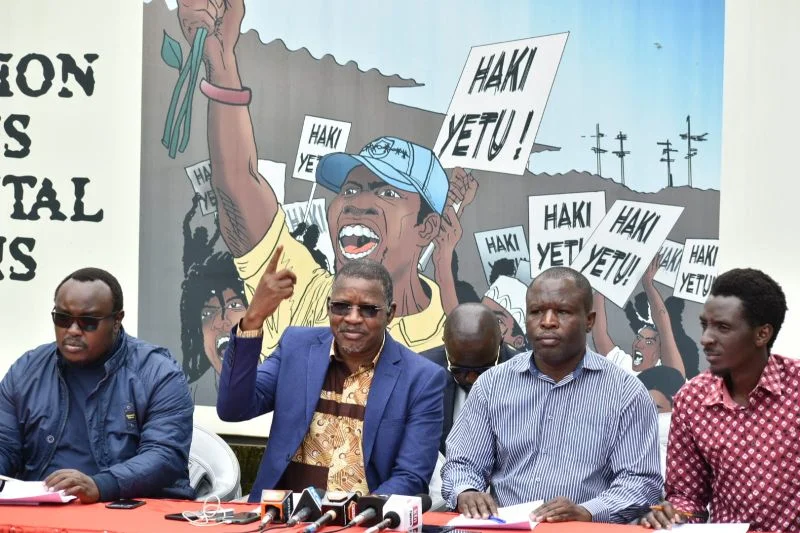The closure of Kenya’s 2022 General Elections left one thing tacitly clear as top level priority that warranted urgent reforms, in the words of the contending political protagonists, and total overhaul and transformation, in the eyes of civil society: EDUCATION
So, some breath of fresh air, relief and high hopes were noted when President William Ruto through a Gazette Notice number 11920 published on 30 September 2022, notified the public of the establishment and appointment of persons to a Presidential Working Party on Education Reforms – PWPER - under the chairmanship of Prof. Raphael Munavu, with powers and capacities to initiate and inform Education reforms by consulting and receiving information from public and experts on areas touching on Basic Education, tertiary/TVET and university Education as per the gazetted Terms of Reference, and carrying out such other functions necessary to undertake any matter incidental or ancillary to the Education reform agenda.
However, more than 276 days later since the Working Party began its work, more confusion devoid of clear direction seem to cloud the path to reforms. Snippets of half-baked and poorly digested piecemeal interventions have become the hallmark of the Administration’s change process. Nothing serene has been forthcoming in having a proper guide to the Education sector in terms of addressing the myriad of challenges choking the sector.
Financing - Chronic underfunding of Education sector needs ( teacher recruitment,research, special education, capitation grants) continues to be normalized. Besides, perennial delays in disbursement of capitation and other grants have become the order of things. These have caused unimaginable disruption of Education processes. There have been wastage of learning time as most schools have resorted to sending away students frequently to collect school fee balances. In addition, there occurs delayed payment of suppliers, Board of Management (BOM) academic and non-academic staff affecting service delivery. Whenever the remittances arrive, there is minimal time for implementation of projects giving room for violation of procurement procedures thus acerbating corruption.
Legality of the new university funding model – through direct engagement with the media, on 3 May 2023 at State House, Nairobi, the president announced a new model of funding TVET and higher Education. This was disguised as a response addressing the challenges faced by students, colleges and universities, and in particular, the president stated that the model would be benefiting students from extremely poor backgrounds. Stuck inside and undisclosed, however, was the disproportionate increase in university fees charged for different courses, elevating such professional courses beyond the reach of economically disadvantaged students. The likelihood of poor students missing out on specialized degree courses due to infiltration and abuse of the assessment criteria. Some of the universities and colleges risk closure if they will be unable to attract significant students’ admission. The major question is where the suggestions were subjected to public participation and the electric speed with which the new model has been rolled out through KUCCPS. The administration has basically extricated itself from the responsibility of the State to finance Education and transferred this to the poor and overburdened parents.
PWPER Report – EBWG remains concerned with the piecemeal release and implementation of PWPER recommendations. We have witnessed through State House press releases the ‘launch’ of a new TVET and University funding model, the scrapping of categorization of secondary schools, the reduction of subjects for the JSS, and the transition of KNEC to Kenya National Assessment Centre (KNAC). Further query on the status of the Main Report have born no fruits.
Call to action
- Prioritization of the release of school capitation by the Ministry of Education. Release of second term capitation yet to be done
- Suspension of the new university funding model to allow for proper public consultation. The model has already been rolled out in the KUCCPS admission portal.
- PWPER to officially release report for public consultation. Continuing to undertake piecemeal releases of the report smells of mischief and bad faith. We urge the president to cause the release forthwith of the final report and other interim reports that the team has produced so far as advisories to the president on the subject matter and help guide Education in Kenya.
- Urgent review of JSS transition with a view to minimizing the damage being done to the Grade 7 students
Commitment to action
- EBWG shall roll out a country-wide outreach programme focusing on Education Conversations to enable Kenya to internalize the minimum standards and principles of Education ideal for Kenya now and into the future.
- EBWG shall engage key Education stakeholders starting with the Ministry of Education and relevant state and governmental agencies to facilitate understanding of the principles and minimum standards including the establishment of a National Education Fund.
- Continue with broadened consultations for development of a comprehensive National Education Policy.
Signed on 25/6/2023.


